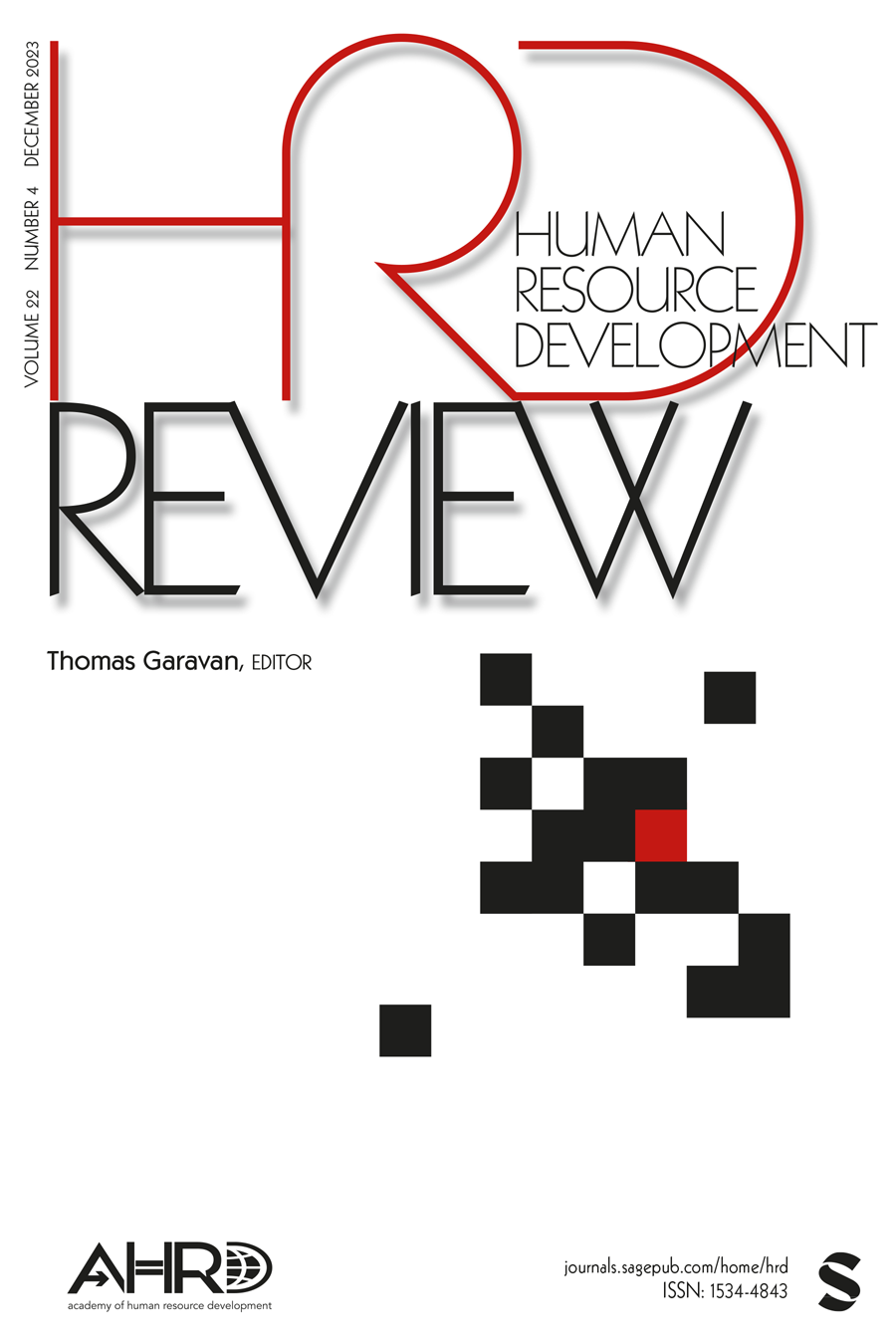对社会负责的人工智能赋予人的分析能力:迈向可持续发展的新框架
IF 4.6
3区 管理学
Q1 MANAGEMENT
引用次数: 1
摘要
多家知名机构发布的一系列关于人工智能不当行为的报告引发了公众意识的高涨,呼吁人们更负责任、更可持续地使用人工智能。注意到社会责任人工智能(SRAI)是PA和HRD领域的一个新概念,我们通过对75篇文章的综合文献综述深入研究了这一主题,并将三个可持续性概念纳入人工智能支持的PA:企业社会责任(CSR)、环境、社会和治理(ESG)和联合国可持续发展目标(sdg)。通过利益相关者的观点,我们确定了主要的SRAI利益相关者(主体),并分析了他们的基本考虑因素(目标)、人工智能技术的障碍(原因)和解决方案(手段)。分析阐明了将AI-enabled PA增强为srai - powered PA以实现可持续性的关键要求和考虑因素。在此基础上,提出了从理论上全面理解SRAI的整体框架,并为人力资源开发学者和专业人士提供了实践启示、建议和未来的研究方向。本文章由计算机程序翻译,如有差异,请以英文原文为准。
Socially Responsible Artificial Intelligence Empowered People Analytics: A Novel Framework Towards Sustainability
Series of reports on AI misconduct from multiple renowned organizations have triggered a surge of public awareness, calling for more responsible and sustainable use of AI. Noting socially responsible AI (SRAI) as a new concept in the field of PA and HRD, we delved into the subject through an integrative literature review of 75 articles and incorporated three sustainability concepts into AI-enabled PA: corporate social responsibility (CSR), environment, social, and governance (ESG), and UN sustainable development goals (SDGs). Through a stakeholder view, we identified major SRAI stakeholders (subjects) and analyzed their essential considerations (objectives), the impediments of AI technology (causes), and the solutions (means). The analysis illuminated key requirements and considerations for enhancing AI-enabled PA to SRAI-empowered PA towards sustainability. Moreover, we proposed a holistic framework to thoroughly understand SRAI in theory and provided practical implications, recommendations, and future research directions for HRD scholars and professionals.
求助全文
通过发布文献求助,成功后即可免费获取论文全文。
去求助
来源期刊

Human Resource Development Review
MANAGEMENT-
CiteScore
9.60
自引率
17.20%
发文量
35
期刊介绍:
As described elsewhere, Human Resource Development Review is a theory development journal for scholars of human resource development and related disciplines. Human Resource Development Review publishes articles that make theoretical contributions on theory development, foundations of HRD, theory building methods, and integrative reviews of the relevant literature. Papers whose central focus is empirical findings, including empirical method and design are not considered for publication in Human Resource Development Review. This journal encourages submissions that provide new theoretical insights to advance our understanding of human resource development and related disciplines. Such papers may include syntheses of existing bodies of theory, new substantive theories, exploratory conceptual models, taxonomies and typology developed as foundations for theory, treatises in formal theory construction, papers on the history of theory, critique of theory that includes alternative research propositions, metatheory, and integrative literature reviews with strong theoretical implications. Papers addressing foundations of HRD might address philosophies of HRD, historical foundations, definitions of the field, conceptual organization of the field, and ethical foundations. Human Resource Development Review takes a multi-paradigm view of theory building so submissions from different paradigms are encouraged.
 求助内容:
求助内容: 应助结果提醒方式:
应助结果提醒方式:


